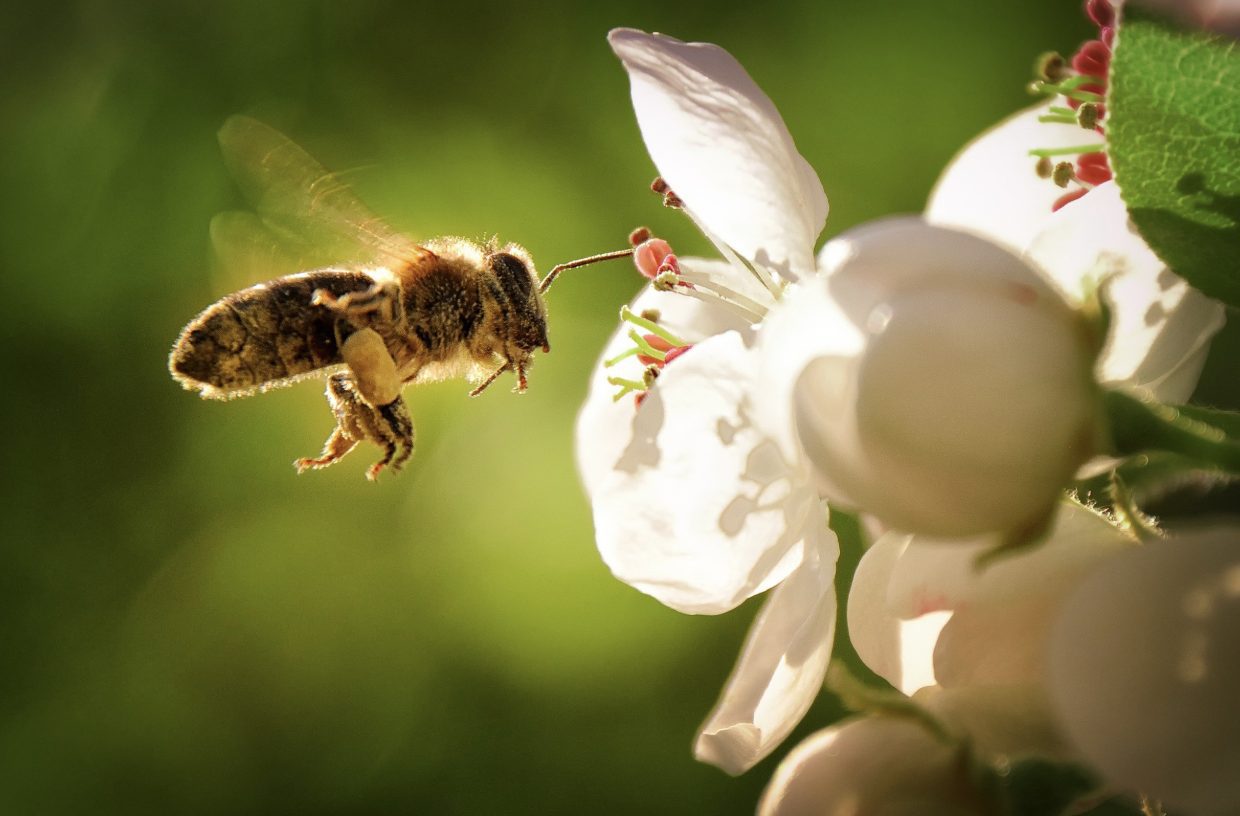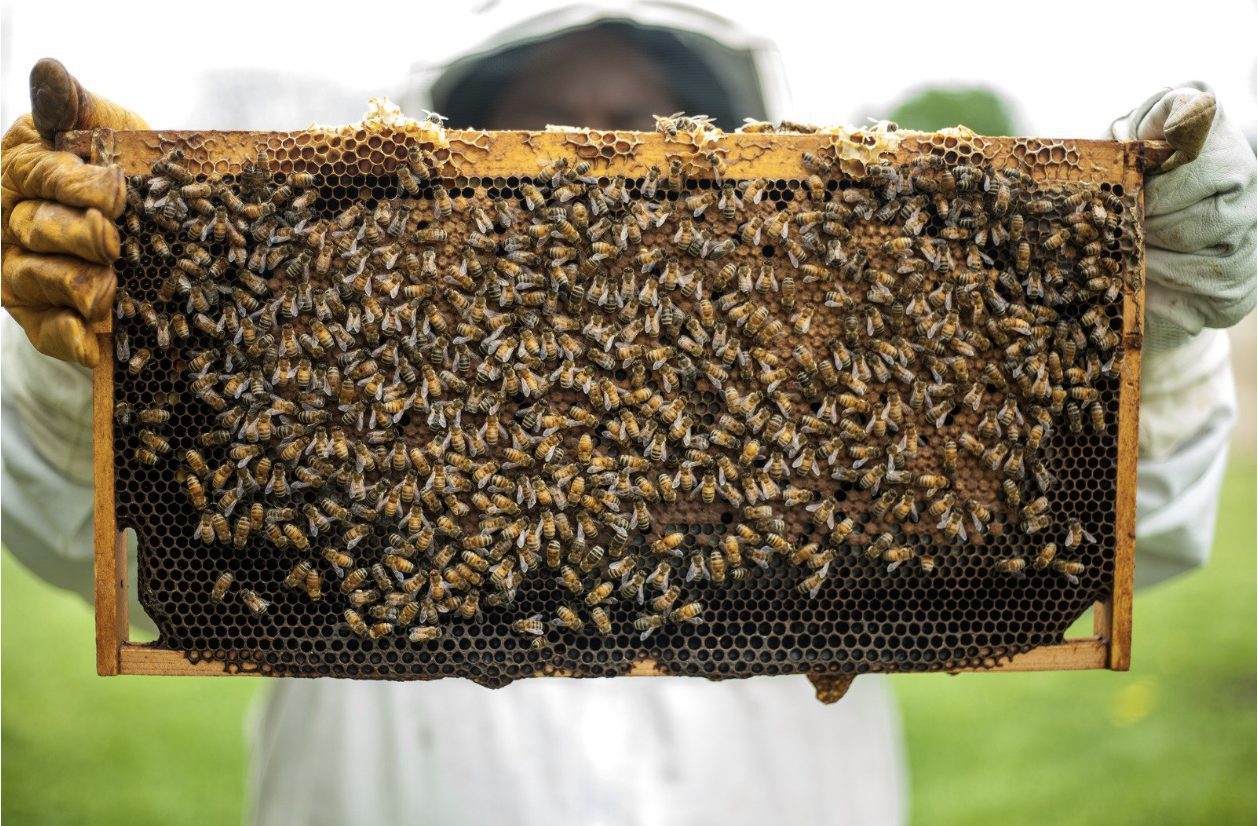
Every year on April 7, we observe World Health Day to celebrate the importance of our health and well-being. This year’s campaign is to raise awareness of building a fairer and healthier world for everyone by eliminating health inequities. To achieve this goal, one of the most important things to do is by protecting our nature, including honeybees.
YOUR EVERYDAY NEED
Bees play an important role in every aspect of the ecosystem. Around 85 percent of food crops and fruits are pollinated by 20,000 bee species, from strawberries and cherries to chestnuts and almonds. Aside from this, bees also produce a sweet and healthy nectar – honey. Not only is honey delicious it also is reported to be antibacterial and have anti-inflammatory properties, providing a natural remedy for pain relief.
But this natural remedy is under threat as bee colonies collapse worldwide, risking bees’ role as pollinators and the global supply of honey.
According to a study published in the journal One Earth, the number of bee species has declined dramatically in the wild in the past decades. The sharpest reduction of bees happening between 2006 and 2015, when scientists failed to observe 25 percent of known bee species. This has resulted in a nearing tragic loss for our ecosystem, as bees are our most important pollinators.
We take bees and their honey for granted. As their habitats are being destroyed by multiple threats, we will likely see an impact on food production.
THE DESTRUCTION OF BEEHIVES
The number of honeybees is in decline. Greenpeace has reported that the number of bee colonies per hectare fell 90 percent from 1962 to 2008 in the US. The destruction of beehives is caused by various factors for example; exposure to pesticides and habitat loss and degradation caused by climate change.

A popular discussion relating to the decline of bees is the use of neonicotinoid pesticides and the damage they can cause. According to a report in 2013, the European Food Safety Authority stated that three neonicotinoid class insecticides debilitated the bees’ immune system leading to colony collapse disorder (CDD), a situation where worker bees disappear from a colony abandoning their queen. Some nurse bees stay behind to take care of the remaining young bees and the queen, but this usually means the colony will not survive.
Around 10 million hives disappeared due to CCD between 2014 to 2017. Climate change is causing bees to fail to migrate to cooler areas and build new hives. In an article published in 2015 researchers looked at data over the past 110 years across North America and Europe to trace bees’ movement. Scientists found the bees were not shifting their ranges northward and many died in the southern end of their migrations.
HONEY FOR CHRONIC PAIN
As a traditional medicine, honey is used for pain management and to treat various conditions from healing wounds to preventing chronic pain forming as it contains around 200 compounds including amino acids, vitamins, minerals and enzymes.

Honey also contains antibacterial, and anti inflammatory properties. In the ’30s, CE Philips and Voigtlander used honey to treat infected wounds, burns and scalds. More recently, honey has been used as a natural remedy to help those suffering from arthritis with some people suggesting to use it mixed with with cinnamon or apple cider vinegar.
SIMPLE WAYS TO SAVE HONEYBEES
There are some ways we can protect these wonderful honey bees from extinction. For starters, we can buy organic produce to support farmers that do not use pesticides and herbicides or just do our own gardening with natural fertiliser.
As well as going chemical-free, you can also be proactive and plant a bee garden in a space as small as a window box. There are loads of plants you can choose that bees love, like sunflower, mint and lavender. These plants provide nectar and pollen and will make your garden look beautiful.
Don’t forget to also pick up your natural remedy from your local beekeepers in order to support their sustainable beekeeping practices.
In the wake of World Health Day, health protection needs to be placed as the centre of the existing global agreement to tackle climate change.
The UN Framework Convention on Climate Change (UNFCCC) underlines the need to improve human health while protecting the natural environment.
For that reason, protecting the natural environment should be our top priority as these disruptions will affect the sustainable sourcing of ingredients for natural remedies, such as bees and their honey.
Lastly, educate yourself and those around you about bees. Honeybees are adorable and not dangerous. But if you feel uncomfortable around them, contact the nearest beekeeper and don’t make careless reactions that can harm the bees.
If you want to discuss or share your experience pertaining to honeybees, feel free to join our Facebook page Together for Better Days. It’s a great place for holistic health tips, advice and support.



